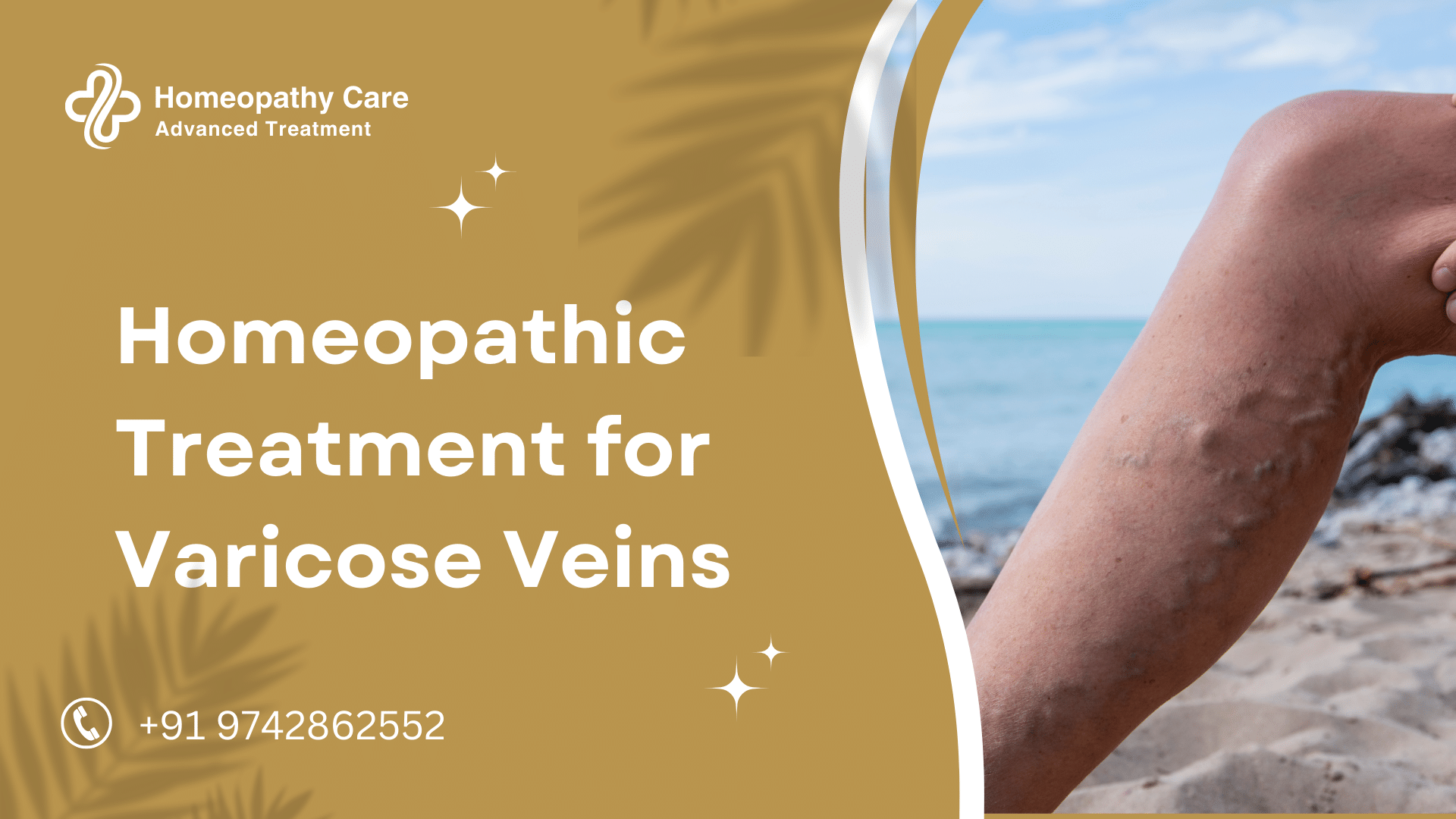Homeopathic treatment for varicose veins in legs, characterized by enlarged, twisted, or engorged veins, commonly appear in the legs and feet due to improper functioning of valves in the veins. While conventional treatments like sclerotherapy and laser surgery exist, they often come with side effects and risk of recurrence. Homeopathy offers a natural and effective alternative for managing varicose veins.
Understanding Varicose Veins
Varicose veins develop when the valves in the leg veins fail to function properly, leading to blood pooling and vein enlargement. Symptoms may include aching, tiredness, throbbing, cramping, and visible changes in the veins.
Homeopathic Treatment Approach
Homeopathy aims to strengthen vein valves, reduce blood engorgement, and manage symptoms using natural medicines. Some top homeopathic remedies for varicose veins include:
- Hamamelis Virginiana: For tiredness or aching in the legs, along with tense feelings and soreness.
- Pulsatilla Nigricans: Ideal for painful varicose veins, accompanied by a tensed and drawing sensation.
- Calcarea Fluor: Recommended for hard, knotty varicose veins and dry, cracked skin on the legs.
Also Read : Managing Chorea with Homeopathic Medicines
Benefits of Homeopathy
Homeopathic medicines offer several advantages over conventional treatments:
- No Side-Effects: Homeopathic remedies are made from natural substances and cause no side effects.
- Simple and Effective: Homeopathy restores the body’s healing mechanism, addressing the condition naturally.
- Long-Term Relief: Once treated successfully, varicose veins rarely recur with homeopathy.
Lifestyle Management
In addition to homeopathic treatment, lifestyle modifications can help prevent and manage varicose veins:
- Regular Exercise: Activities like walking, swimming, and cycling improve blood circulation.
- Healthy Weight: Maintaining a healthy weight reduces pressure on veins and lowers the risk of varicose veins.
- Dietary Changes: Consuming anti-inflammatory foods rich in flavonoids, vitamin E, vitamin C, magnesium, and fiber can aid in vein health.
Complications and When to Seek Help
Complications of varicose veins include bleeding, venous ulcers, varicose eczema, superficial thrombophlebitis, and deep vein thrombosis. It’s essential to consult a physician if symptoms worsen or if there are signs of complications.
Conclusion
Homeopathy offers a safe and effective approach to managing varicose veins, addressing symptoms while minimizing the risk of side effects. By combining homeopathic treatment with lifestyle modifications, individuals can experience long-term relief and improved vein health. Always consult with a healthcare professional before starting any treatment regimen.


